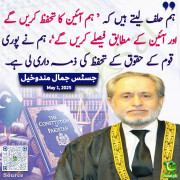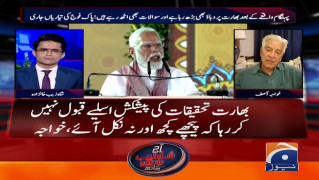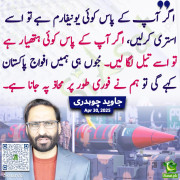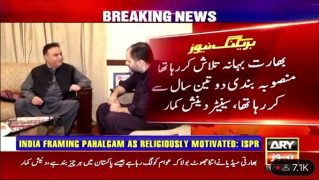rustam e hind
Banned
[h=1]Pakistani Christian boy dies after being set on fire by young extremists[/h]
 A demonstrator burns a cross during a protest in the Badami Bagh area of Lahore, Pakistan (CNS photo/Adrees Hassain, Reuters)
A demonstrator burns a cross during a protest in the Badami Bagh area of Lahore, Pakistan (CNS photo/Adrees Hassain, Reuters)
A teenage boy was attacked on Friday for saying he was a Christian
A Pakistani Christian boy has died after being set on fire by a group of young Muslims after they discovered he was a Christian, according to a charity dedicated to supporting Pakistani Christians.
The Centre for Legal Aid, Assistance and Settlement (CLAAS) said that Nauman Masih, 14, was set upon by unknown Muslims who were going to the mosque to offer their Friday prayers.
Nauman died last night and his funeral service was held today at 1pm (local time) in Gulshan Ravi, Shera Kot, in Lahore, CLAAS said.
In Nauman’s statement to the Superintendent of Police he said that two Muslims approached him on a motorbike and asked him about his religion. When he said he was Christian they started to beat him up and after he ran away, folllowed him and subsequently threw kerosene over him and set him alight.
 Nauman Masih pictured in hospital before he passed away
Nauman Masih pictured in hospital before he passed away
Nauman said: “I was running when a heap of sand came my way, I lay down on the sand, and a few people from the community put out the fire by putting sand on me. I became unconscious, and they called the emergency medical helpline and called [for] an ambulance.”
The police have registered a case against the unknown attackers.
Christians in Pakistan are becoming increasingly endangered in the country. Last November a Christian couple, Shama and Shahzad, were burnt alive in a brick kiln furnace.
Nasir Saeed, director of CLAAS-UK, said: “The perpetrators must be brought to justice for lessons to be learned and to act as deterrents. Other people, and if necessary the government, must introduce some stringent punishment.”
by Staff Reporter
posted Wednesday, 15 Apr 2015
posted Wednesday, 15 Apr 2015

A teenage boy was attacked on Friday for saying he was a Christian
A Pakistani Christian boy has died after being set on fire by a group of young Muslims after they discovered he was a Christian, according to a charity dedicated to supporting Pakistani Christians.
The Centre for Legal Aid, Assistance and Settlement (CLAAS) said that Nauman Masih, 14, was set upon by unknown Muslims who were going to the mosque to offer their Friday prayers.
Nauman died last night and his funeral service was held today at 1pm (local time) in Gulshan Ravi, Shera Kot, in Lahore, CLAAS said.
In Nauman’s statement to the Superintendent of Police he said that two Muslims approached him on a motorbike and asked him about his religion. When he said he was Christian they started to beat him up and after he ran away, folllowed him and subsequently threw kerosene over him and set him alight.
 Nauman Masih pictured in hospital before he passed away
Nauman Masih pictured in hospital before he passed awayNauman said: “I was running when a heap of sand came my way, I lay down on the sand, and a few people from the community put out the fire by putting sand on me. I became unconscious, and they called the emergency medical helpline and called [for] an ambulance.”
The police have registered a case against the unknown attackers.
Christians in Pakistan are becoming increasingly endangered in the country. Last November a Christian couple, Shama and Shahzad, were burnt alive in a brick kiln furnace.
Nasir Saeed, director of CLAAS-UK, said: “The perpetrators must be brought to justice for lessons to be learned and to act as deterrents. Other people, and if necessary the government, must introduce some stringent punishment.”













 Article Info
Article Info

































